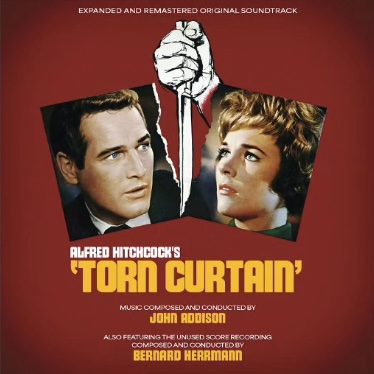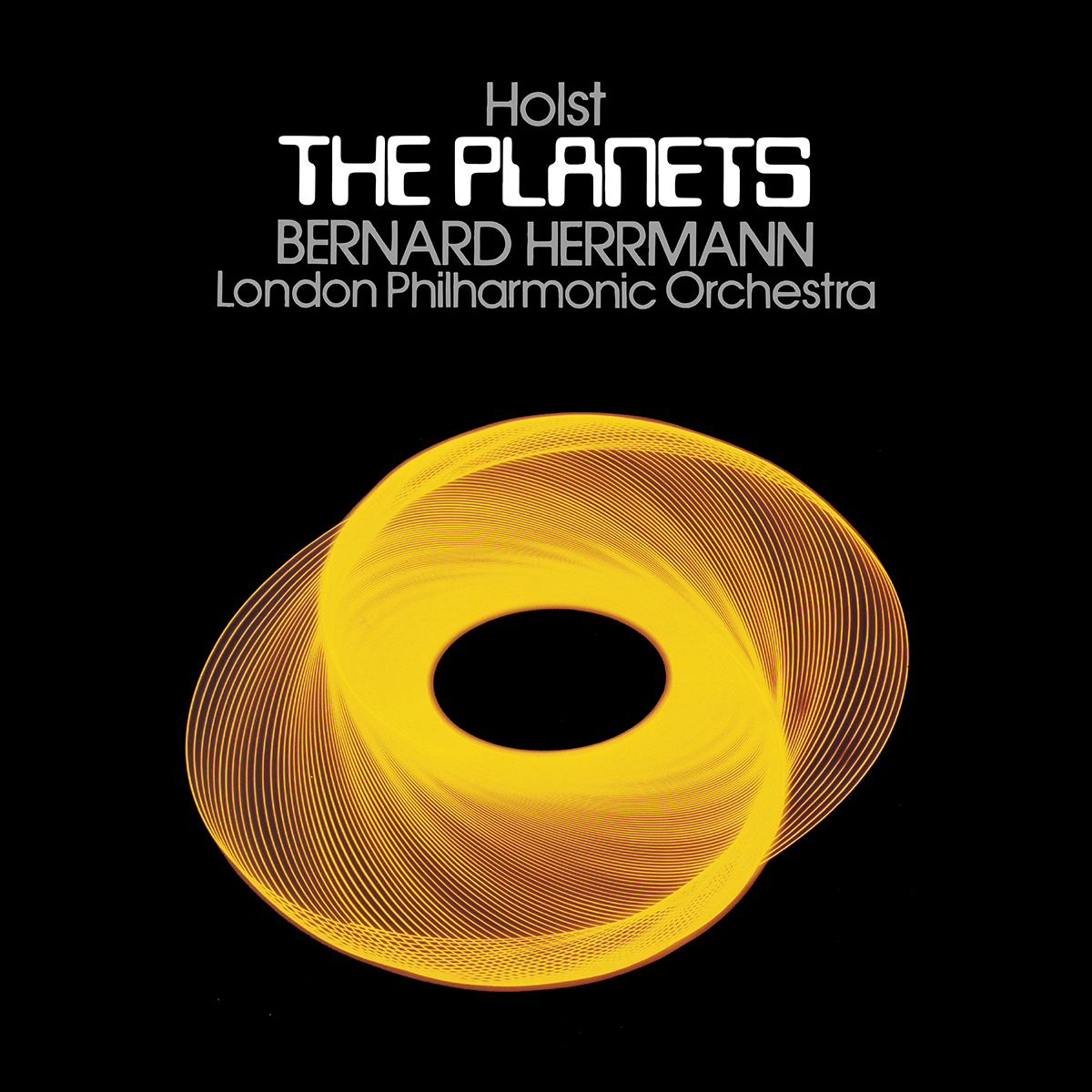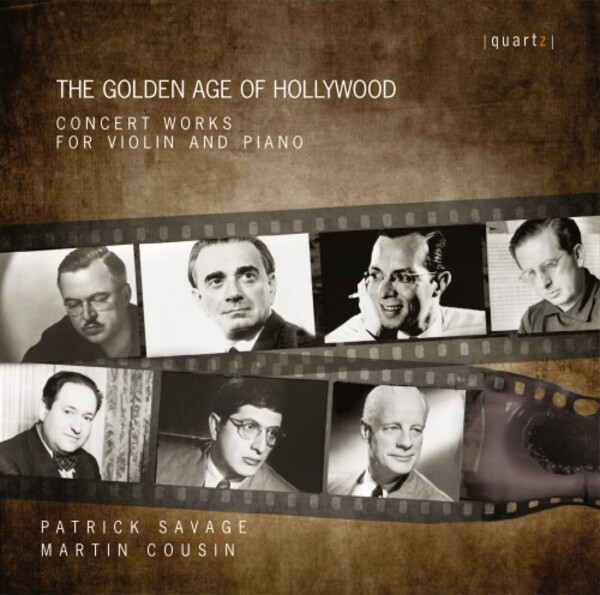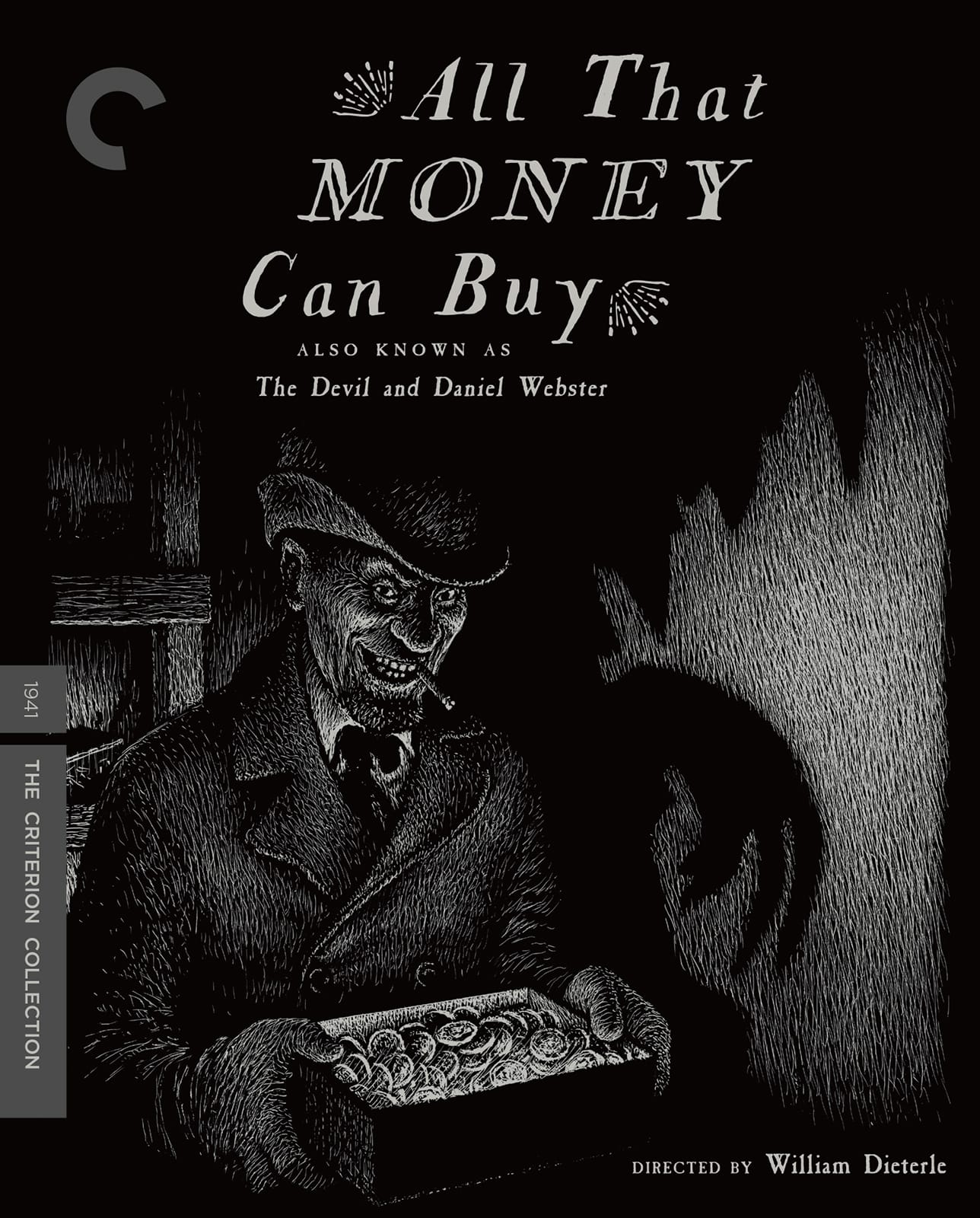Kurt Luchs: While well-liked among Herrmann aficionados,
The Trouble With Harry is not generally regarded as one of his quintessential scores.
The last time we talked, in fact, you offered a short list of Herrmann essentials, and
Harry didn’t make the list. Yet what struck me on hearing your new recording is how utterly beautiful and charming this music is. Call me fanatical, but I do think it’s a must-have.
Robert Townson: You see, there’s the danger in lists. Something always gets left off. My “utterly ruthless” list included Kane, Muir, Vertigo, Sinbad and Psycho. If forced to stick to five I think I would stand by this list. Certainly, however, I agree that Harry more than qualifies as a must-have. So does North By Northwest, Jane Eyre, Taxi Driver, Gulliver, Obsession, Fahrenheit 451 and so many more! How can you leave out any of those? As far as Harry not being generally regarded as a quintessential score … I think there are reasons for this, beyond the music. One big reason is that it has never been available before! The fact that there has never been an album of the score coupled with the relative obscurity of the film has simply not allowed a wide audience to fall in love with it. For those who know, however, those who have managed to see the film, this is certainly a score that holds a special place near their heart. There has been a consistency to the mail we have received about this release. The sentiment has been “I never, ever thought you guys would record The Trouble With Harry. I can’t believe you did it! I can’t believe I just went to a record store and bought The Trouble With Harry! God bless you!” We seem to have really shocked people with this one. I am exceedingly happy with this release.
KL: Even if it weren’t indelibly linked with the lush, autumnal colors of the film, this score would evoke the golden days of a New England fall. It’s almost a pastoral symphony a good deal of the time.
Townson: It certainly is! There really is a visual aspect to much of Herrmann’s work. He paints with such vivid color. The Trouble With Harry‘s effect as a pastoral symphony is not dissimilar to The Ghost and Mrs. Muir‘s long drawn resemblance to a sea symphony. I find it quite remarkable how well the CD plays, containing all forty cues Herrmann composed for this film. With that many cues, some as short as 21 seconds and nothing longer that 2:17, a reasonable concern would be, and in fact was, that as great a score as it is, this could be a very choppy CD. On the contrary, every piece so perfectly sets up the next that the natural segues and pacing of everything results in an eminently “playable” album. I can’t tell you the number of times I have sat down to listen to just the Overture and Autumn and ended up listening to the entire CD. The score really is infectious … and inescapable.
KL: Parts of Harry remind me of All That Money Can Buy (particularly the combination of humor and pastoral beauty), and some of the more serious passages recall the Lincoln Memorial and Arlington Cemetery cues from The Day the Earth Stood Still. But overall this is unlike any other Herrmann score. Other soundtracks of his have traces of humor, but Harry is funny or at least lighthearted throughout, albeit with an often mordant sensibility, like the film itself.

Townson: I think that Harry, like many of Herrmann’s scores occupies a world that is distinctly its own and I agree that it is its overall lightheartedness that is its most distinctive characteristic. Certainly it is unmistakably Herrmann and his style rings through every bar, but like Alex North, the diversity each composer could attain while remaining true to themselves is absolutely remarkable. In Herrmann’s case you can go to the famous Psycho or Jane Eyre, the less famous like On Dangerous Ground and Hangover Square, or the downright obscure The Kentuckian and cover a musical range as vast as any in symphonic music, all the while remaining thoroughly “Herrmann”! With Alex North I find it fascinating to see how in two scores as diametrically opposed as Death of A Salesman and Spartacus Alex North’s voice can still sing through, ultimately connecting them, maybe in ways that won’t even be picked up by most people, but that’s fine. Noting the stylistic link is not important for appreciating the music. I just find it interesting to find how intrinsic the stylistic trait can be in various artists’ work. With some it may be something as superficial as motifs or orchestration techniques. The deeper you get however, when you have things like subtext, point of view and psychoanalysis all contributing to the “style” at hand, then you can have all of the normal music devices layered on top. This may diffuse the perception of the linking elements but in no way render them any less present. This is how you can have the alto flute theme for Willy Loman be as unmistakably “North” as the 110 piece orchestra of Spartacus. I was discussing this concept with Matthew Peak not long ago in the context of how, when people discuss his father’s style it is in relation to color, scope and the epic power of so many of his paintings. All these things are true. But just as true is how much of Bob Peak can be found in a single graphite line on a piece of paper. He had such command of his art that elements of who he was and what he had learned as an artist could still come through in the seemingly simplest of means, much like Alex North’s Willy Loman theme or Herrmann’s autumnal strains for The Trouble With Harry. Such great artistry!
KL: Contrasting elements or characters in the story are occasionally played up in the score for comic effect. For example, as Christopher Husted points out in his liner notes, the aging Captain (Edmund Gwenn) gets the most lyrical melody, not the central love interest Jennifer (Shirley MacLaine). Do any other passages strike you as especially good musical jokes? Personally, I laugh every time I hear the jaunty violin figure of The Doctor turn into a tripping-over-the-corpse motif. Even my three-year-old daughter gets this joke. Whenever we listen to it she asks, “Is he falling on Harry, Daddy?”
Townson: I think I’ll side with your daughter on this one. I think that whole opening sequence is absolutely masterful. With parts of this score Herrmann really took “Mickey-Mousing” to it highest plane. Aside from this though, I think on the whole the score doesn’t really come off as inherently “funny” on its own. Within the context of the film it certainly highlights the visual gags and it is invaluable for the comic timing of the proceedings, incorporating dramatic pauses into the music before picking the next phrase. As a score and as a CD, however, it sheds this association quite well and functions wonderfully as an autonomous, stand-alone work.
KL: Not only is Harry unique in Herrmann’s canon, it’s unique among his collaborations with Hitchcock. As Husted says, “it is not brooding and forceful at all–it has a sing-song quality, blithely and dryly commenting on the unfortunate problems prompted by Harry’s dead body.” Your thoughts on this?

Townson: Well, this is certainly true. I think that it’s wonderful that Herrmann and Hitchcock finally managed to get together in time for this film. It really does contribute an element to their body of work that is otherwise absent. I have to say that it also makes me long for the “what might have been” if only they had come together even earlier. Now certainly I wouldn’t sacrifice Rozsa’s Spellbound or Waxman’s Rebecca for anything in the world, even hypothetically, but it is tantalizing to imagine what may have resulted from an earlier joining of forces. Ah well, as it is I think that The Trouble With Harry is an absolutely marvelous way for their collaboration to have begun. As intense as things would end up getting in the later pictures, its quite refreshing to begin with this simple walk in the country … nothing too ambitious … but an absolute joy.
KL: Christopher Husted says of one cue, Autumn, that “The modal harmonies in the strings give the tune the feeling of an English folksong.” Steven C. Smith also mentions the score’s “essential Englishness.” Can you talk about that? And might this have anything to do with all the work the composer had done in recent years on his very English opera, Wuthering Heights?
Townson: Who’s to know, really where it came from. I would venture that it’s not too far a stretch to suspect that Herrmann’s Anglophile tendencies which would become much more prevalent later in his life were already firmly rooted in his personae. I would also guess that the landscape of the beautiful New England setting allowed this “take” on things to seem all the more appropriate.
KL: In your own liner notes to the Herrmann Concert Suites box set you prepared some years ago, you mention how interesting it is that Herrmann later retitled a suite from this score when he rerecorded it in 1968 for the London Records compilation Music from the Great Movie Thrillers. He called it A Portrait of Hitch. Was that a comment on the film, the score, or both?

Townson: Well, my interpretation of his title is that it is a personal comment. By the time Herrmann prepared the suite his relationship with Hitchcock had run its course. Every note of music he had ever composed for Hitchcock or would ever compose for Hitchcock, had been written. It was all in the past now. My assumption is that of all of the music Herrmann wrote for Hitchcock, he felt that The Trouble With Harry was the most representational of Hitchcock–the man, or at least how Herrmann perceived him. Interestingly Hitchcock’s own musical vision of himself seemed to bear this out. In spirit, Gounod’s March of the Marionette which would be used as the theme for Hitchcock’s TV series is not too far removed from the spirit of Herrmann’s Harry score. They both capture the wry darkness of Hitchcock’s theatre of the macabre in a way that was not off-putting but rather, as we have said, “lighthearted.”
KL: Husted also remarks that Harry received more attention than the music from any other Hitchcock film when Herrmann reorchestrated it for that London album. Can you recall any significant differences between the concert suite and the full version of this score?
Townson: I’ve never actually sat down with a score of the concert suite so I don’t have any examples that immediately come to mind. The suite includes the Overture, the doctor theme, the cues Tea Time and The Police and the finale. It was the integration of all of this that received more time from Herrmann than his other film suites … more along the lines of what he did for Jane Eyre. What a wonderful piece that was! I really find it quite amazing that other than those brief eight minutes, that is all that has ever been available from this wonderful score. I have to say though how important Herrmann’s own recording of this suite was to my finally recording the whole score. For years the only way I knew this music was from this performance. Finally I sought out the film to hear for myself the score that had been the basis for this music I loved so much. Of course I was overwhelmed by all of the additional material and the film itself but never imagined that one day I might be able to record the complete score myself.
KL: I watched the film several times and listened to this new recording of the score many times in preparing for this interview. I would say that your team has once more recreated a score in gorgeous modern stereo, preserving the tempo and feel of the original but taking full advantage of contemporary technology. City Halls in Glasgow must be an ideal recording environment, judging by the results you get there.

Townson: I’m glad you feel that way. I must say that I love the room. It does take some taming but on the days we are in top form and the room is behaving it is the most glorious place on earth I can imagine recording. When I listen to The Trouble With Harry CD I just can’t imagine the orchestra sounding any better. Working as I always do with budget constraints that force difficult decisions to be made sometimes, in this case I can honestly say that if I had had unlimited funds, any orchestra, any conductor, any hall, any engineer and as many sessions as I wanted, I can’t imagine doing a better recording. Maybe in someone else’s hands but for me I feel confident that this is the best I could do. I had always dreamt of making this recording. I can’t believe that it’s now one I can look back on. I don’t know how long it’s going to take before I get used to walking over to my CD rack and seeing a spine that says The Trouble With Harry. It hasn’t happened yet. I still pull out the CD, look at it and just shake my head.
KL: The recording of the original soundtrack was an unpleasant experience for both Herrmann, who was ill at the time, and for the Paramount Studios orchestra, which he felt was not quite up to the task (the head music cutter even reportedly called Herrmann “a prick”). Contrast that with your own experience with the Royal Scottish National Orchestra under Joel McNeely’s baton. I’m not as hard on the Paramount players as Herrmann was, but it does seem that the RSNO is a tighter outfit overall.
Townson: I had heard that the original sessions for this score were not very pleasant. We actually had a little of our own trauma to deal with at our Trouble With Harry sessions as they had unexpectedly turned into the end of Joel McNeely’s Bernard Herrmann series. By this time John Debney was already hard at work in Los Angeles studying for the Sinbad recording, among others, not to mention getting ready for a two-week trip to Scotland he had only just found out about. Meanwhile the musicians kept a smile on my face. Hearing how beautifully they were playing and hearing this great score come back to life after some forty-three years–how could I not be smiling? They just make everything sound so good! As I have said time and time again, they are an absolute joy to work with. The day I leave for Scotland I am exhausted by what I have had to go though to get ready. Then there is the physical wear and tear of traveling on top of that. Finally the first downbeat comes and I am filled with energy. By the time I am back in Los Angeles I am completely wiped out again. Two weeks later I already can’t wait to do it all again.
KL: Once again I think Matthew Joseph Peak should be mentioned for his cover painting. It depicts almost every major character from the film (including Harry, in his favorite horizontal position), and the impressionistic fall leaves and blue sky perfectly capture the mood of both the music and the film. Will Matthew be on board for your next Herrmann release? And incidentally, what and when is your next Herrmann release?

Townson: Matthew’s The Trouble With Harry painting is one of my favorites. Actually I absolutely adore every one of the Herrmann paintings he has done. Matthew’s work for The Trouble With Harry, like the score for Herrmann, is a radical stylistic departures from his other pieces. We talked about keeping things light on this one. Matthew’s Sinbad painting was a thirty-six inch square oil on panel, for Harry it was time to break out the water colors and pastels. Matthew will most definitely be on board for the next Herrmann release (Citizen Kane), and most assuredly the next after that, whatever it may be. It really was unfortunate that schedules conspired to work against us on Torn Curtain. That is the only Herrmann recording Matthew has not been involved with. I try to let Matthew know about new recordings as early a possible to allow him as much time as possible to schedule the time he feels the project will need. Scheduling is always my biggest nightmare, with all of my work on new soundtracks, the composers I work with and their film schedules which slide around on them with frightening frequency, kind of a “where it stops … nobody knows” situation, the orchestra’s completely full concert schedule and then Matthew with his many projects. It really is a wonder we ever get anything recorded, let alone as much as we actually do! With six newly recorded Bernard Herrmann CDs behind me now and Citizen Kane on the way, I’m really looking forward to adding to the series.












![The Man Who Knew Too Much – 4K restoration / Blu-ray [A]](../../wp-content/uploads/2023/11/TMWKTM-4K.jpg)
![The Bride Wore Black / Blu-ray [B]](../../wp-content/uploads/2023/07/BrideWoreBlack.jpg)
![Alfred Hitchcock Classics Collection / Blu-ray [A,B]](../../wp-content/uploads/2020/07/AHClassics1.jpg)
![Endless Night (US Blu-ray) / Blu-ray [A]](../../wp-content/uploads/2020/03/EndlessNightUS.jpg)
![Endless Night (UK Blu-ray) / Blu-ray [B]](../../wp-content/uploads/2019/12/ENightBluRay.jpg)